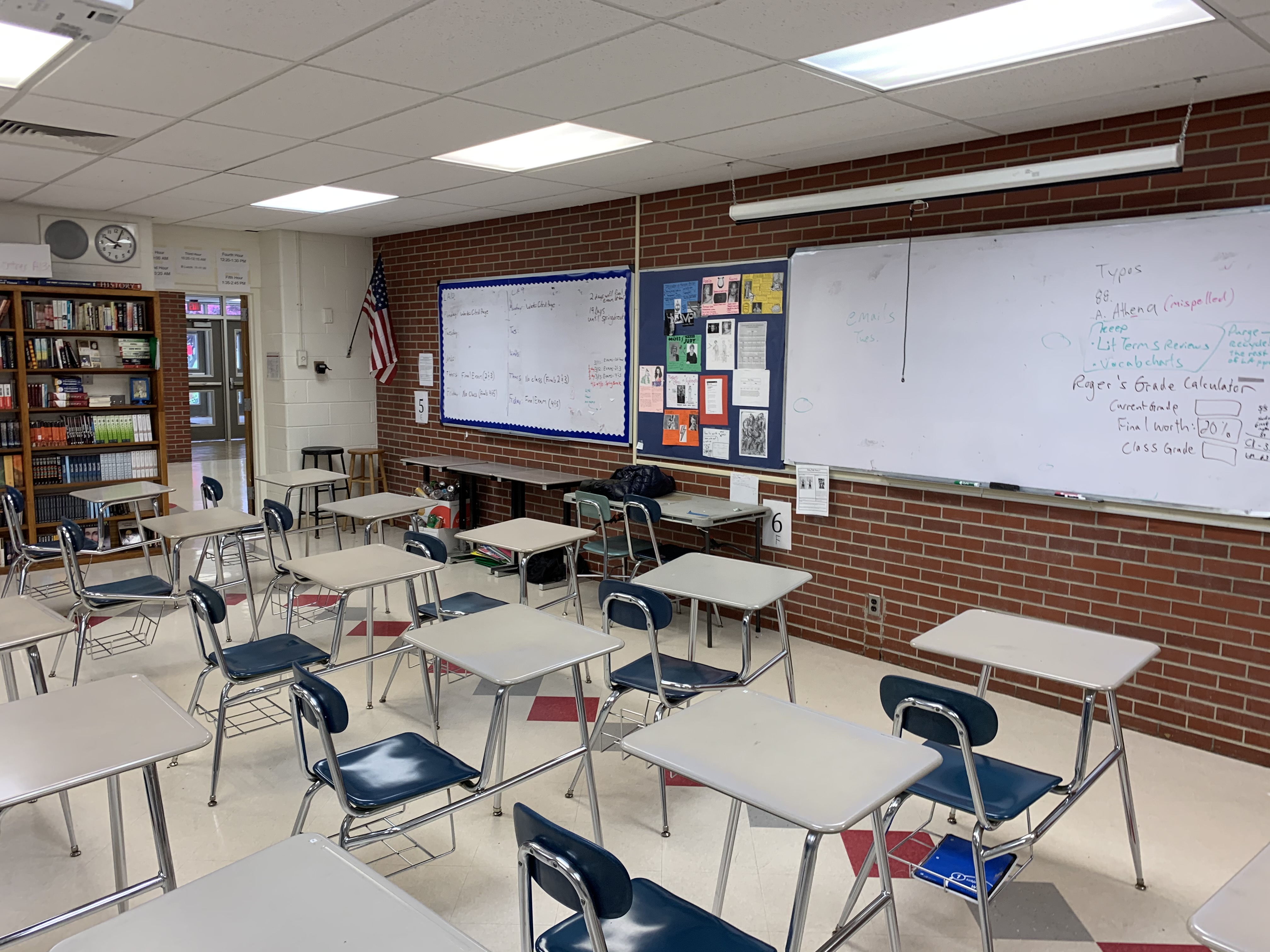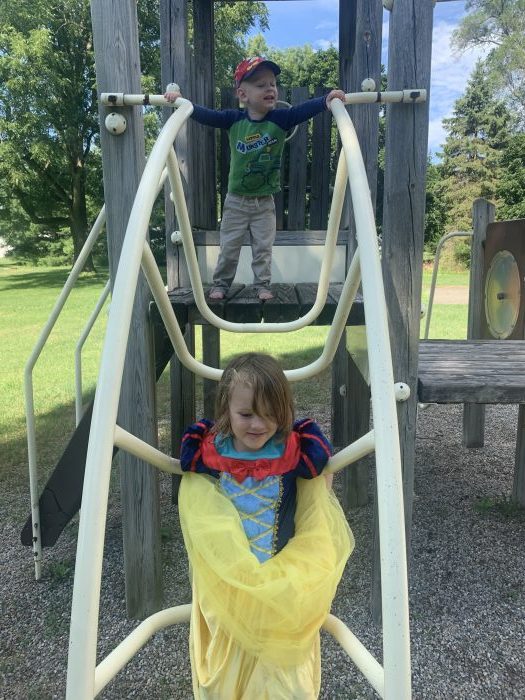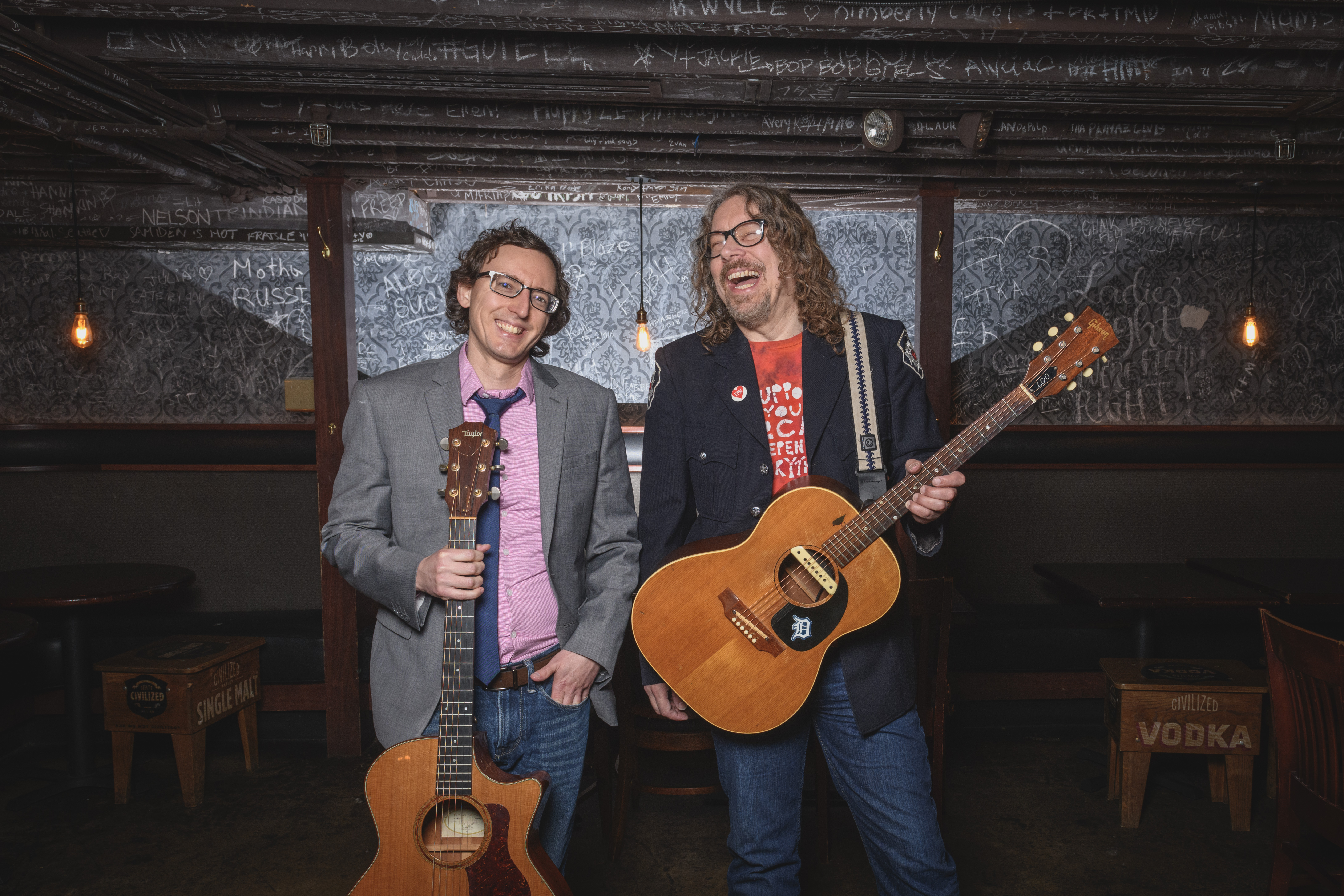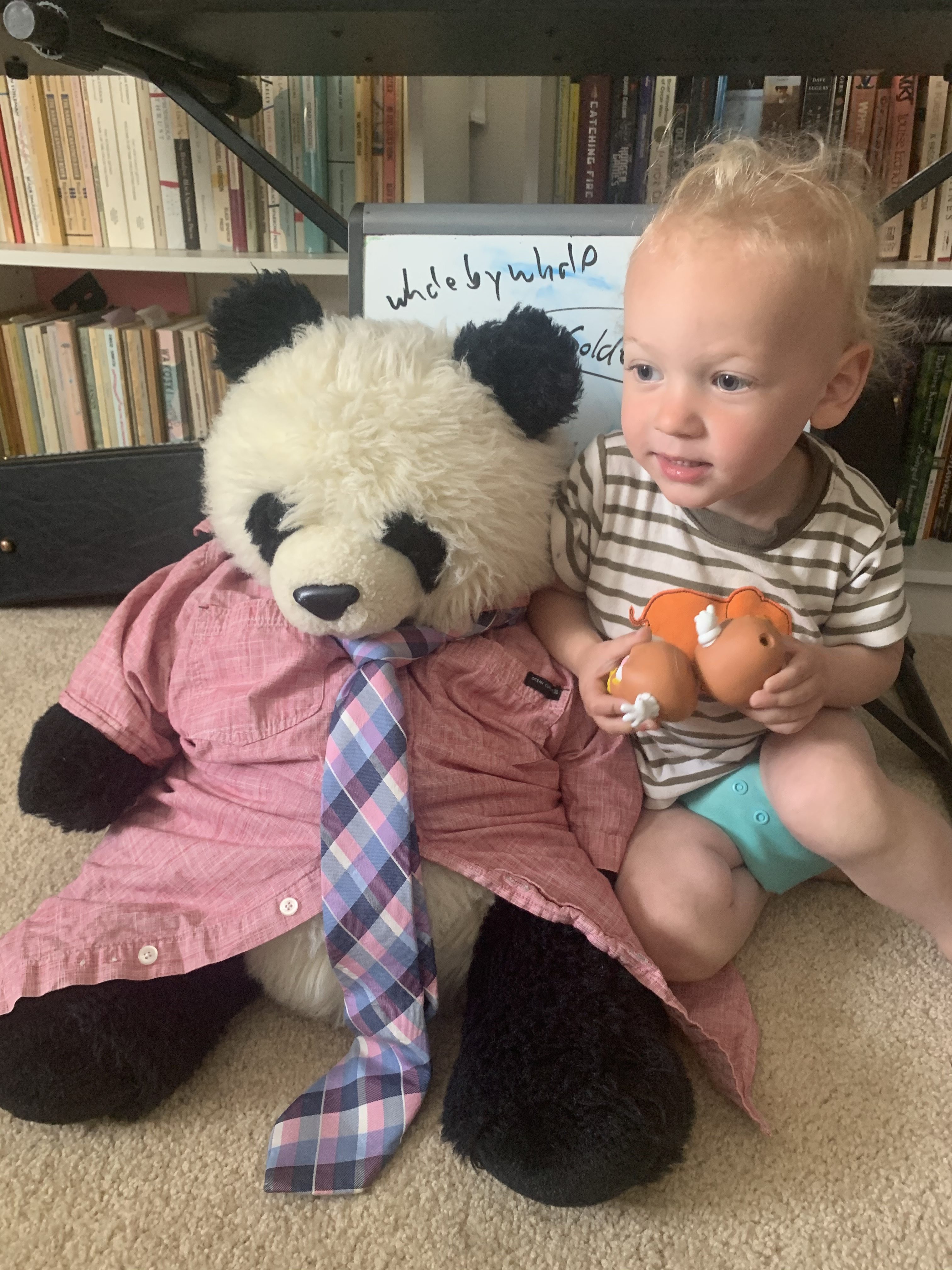How Can We Support our First Year Teachers?

I’m thinking about the young teachers embracing their first, second, or third year in the classroom this fall. How can they even prepare? This upcoming semester must be overwhelming for them.
I’m having recurring nightmares during this pandemic, and they often bring me back to being a first year teacher…My first school meeting is in 12 days, and I still don’t know exactly what classes I’m teaching. I’m beginning to feel like a first year teacher again, in certain ways.
However, by now, I’ve taught almost every type of LA class. I have 1000+ books in my own classroom library. I have read 70% of my school’s book room. I have units and project based learning ideas that I’m considering adjusting for a potential virtual learning (which is enviable, even though we are starting mask-to-mask). I have grammar and syntax units designed, shiftable to online.
My first year at Holly, I felt terrified of the unknown, even though one knew that normal classroom’s scene. My vice principal told me classes to prepare in July, including American Lit. I had read the novels in the curriculum in two months.
Then, I showed up for the first meeting in late August, given a different class, including World Literature! Oh no! The anxiety percolated in my stomach acids all day, as staff introduced me to the other technology, the copy machines, the rules, the layout of the school, the teachers’ names.
That first day was so overwhelming; elements of that never go away each first day of school.
Every teacher at Holly gave me ideas on how to prepare classes. Amy Jo Hughes shared World Literature units. Crystal Palace gave me reading strategies.
Dan Majeske gave me supplies, and hours of his expertise throughout the years, later mentoring me through the return back to teaching.
Wendy Farkus, Renee Hard, and Libby Held checked in multiple times that first day as I was setting up my room; they later taught me how to use lit circles.
Charlie Gragg–also a first year teacher starting his second career–became a mentor for life!
Brian Hacker and Bill Broadway extended friendships that lead to being my groomsmen in my wedding party, 11 years later.
And this was just the English department helping me. There were so many others.
I have treasured these friendships, like my high school and college friendships that have lasted decades. Every in the department attended a gig or two of mine, as I started performing music on the weekends…I consider those first eight years teaching in my twenties where I learned to be an adult. I wouldn’t be the same without them.
I am not a first year teacher, now, but I’m still scared of the unknown.
We are going to need these enthusiastic, new teachers more than ever now. We need to offer our support to them in creative ways, just like our students.
We Must All Do Our Part For Schools


Hi friends, I hope everyone is finding some calmness, through the waves of anxiety, throughout this summer. My wife, kids, and I are blessed with our large yard in the outskirts of Ann Arbor, and our nature trail nearby.
I haven’t seen anyone, except my parents and wife’s parents & grandmother, throughout the pandemic. I miss you. We are prioritizing this time for our kids to see their grandparents and 91-year-old grandmother throughout the pandemic, with as close to zero risk for them, until we know what autumn will reveal.
And then Facebook reminds me how two years ago, Mike Gentry Music and I shared the best gig of my life at the The Ark – Ann Arbor. Many of you were there. (My mom and dad were too. We just celebrated my dad’s birthday at my house on July 12th.)
The Ark is having a campaign: https://www.globalgiving.org/projects/the-ark/
If we donate this month, Ford will match $15K. I urge you to find a music venue in your area to do the same. A bookstore that needs help. A friend’s small business. A musician you can buy from on Bandcamp.
Music life will never return to normal. Most independent music venues will close, since their margins were so slim to begin with. Many independent musicians won’t be releasing music for a long time, the payouts of streaming too low to even pay for the coffee we anxiously drink in the morning.
I emphasize: I’m doing OK. I’ll be teaching at Huron High for my second year, lucky not to be laid off again like last summer at Farmington.
I’ve been quiet on Facebook here, leaving space for other musicians to share their stuff. But the newness of online concerts has worn off. Now, we simply need to reach out to our musical friends and offer a hand. Buy something online. Send a gift. Do what we can.
I’ll be donating to the Ark and Trinity House Theatre this week. They are two venues that have supported me so much this decade.
Thank you for all of your support of the arts and music at the local level. The most important thing we can do doesn’t cost money: We can keep following all of the guidelines to protect our neighbors: masks, social distancing, and tight social bubbles for now.
Covid keeps knocking at the door. We need not answer, so we can be entering our music venues’ doors next year.
God how I miss you all. Online connection isn’t doing it for me anymore.
Hi social media world,
Now that I’m further into fatherhood, I’m making my Facebook profile only available to family, close friends, and those who have actively stayed in touch. As a parent, I see this change as a stage of my social media life cycle.
I’ve taught at five different schools, played 1200+ gigs across the country…yet for the last four months I’ve been in a semi-state of quarantine at home with my family. This intense level of social distancing is so our kids can safely see their grandparents and great grandparent before (if) school starts in the fall.
I haven’t been gigging monthly for the first time since 2007. And as of this weekend, I haven’t seen a friend in four months…
This experience of physical distancing has made me rely on social media differently, and watching friends lose family to Covid-19, without a funeral option, has me reconsidering how to live life after 2020.
But this existential reflection—it’s not a midlife crisis, I swear!—also started from, butterflies.
In May, Ginny and I raised three Painted Lady butterflies as caterpillars: Flower, Milkweed, and Bob. Flower ended up laying eggs, and Ginny and I spread the thistle plants with her seeds all over our back lot. We let Flower go, but kept Bob and Milkweed until they died, because they had wing injuries. Ginny and I cried when we had a funeral for them. Geez, give a bug a name and it becomes a pet!
On the 4th of July, the first of Flower’s eggs had made it to its final stage of its life cycle: A caterpillar emerged from its chrysalis as a butterfly and visited our yard!
Ginny and I caught it, named her Flutter, and fed her strawberries. We let Flutter go, and talked about how cool it was to be a part of these butterflies’ life cycles.
Then, Ginny commented how she felt sad that Flutter didn’t have any butterfly friends, like the first three. (She said she felt the same way, missing her classmates from preschool.) But this week, more Painted Ladies are flying around our neighborhood’s gardens! Flutter isn’t alone anymore. (Our kids will one day run around together, too.)
Today, as the butterflies fluttered outside my window, I checked through my FB friends list, writing messages to folks I haven’t seen in years. I saw some of my former students or colleagues had died; my FB circle was too large for me to ever see the news in the feed. I had allowed a flawed algorithm to attempt the work a friend needs to do, and I felt more disconnected…
So I’m accepting this stage of my social media life cycle.
All writing and music will continue to be posted at the public page Mike Vial and website. My email is mike.m.vial@gmail.com.
Be well. Wear a mask. We are in this together to stop Covid-19’s impact on our world. I’m still here, circling the sun, with you.
Sincerely,
Mike
Establishing a Routine During the Pandemic

Not having a routine becomes a routine. And that is exhausting for the brain, all that constant decision making.
I worry about my students who are succumbing to improvising their days, staying up all night, and treating life like a long action of scrolling through a digital device. I also worry how they are feeling now that we are deep in the mundane and monotony.
I’m now noticing emotional patterns for myself while social distancing at home. The three events of my daily schedule are simple: I watch my kids, I check emails, I comment on student work. Yet, Tuesdays and Wednesdays are the most difficult days for me.
But why? All days are practically the same! They aren’t on a nuanced level.
Thursday, I look forward to podcasts posting, which is a treat after a long day of solo parenting. Friday, I look forward to my wife helping with kids. Saturday, I get to work without interruption or diaper changes. Sunday, I’m not solo parenting. Monday, I’m sort of refreshed. Recognition of this challenge means I can prepare for it.
I’m also finding patterns my two and five-year-old have. For example, 2-3:45 PM is a difficult time. (We watch a show together from 4-5, and they get impatient for that treat.) If I can help them find some activities with novelty or engagement at 2, they have less frustration then.
This week, let’s examine and guide our kids to recreate their schedules. That’s our sphere of control. It might just start with changing from PJs to day clothes.
